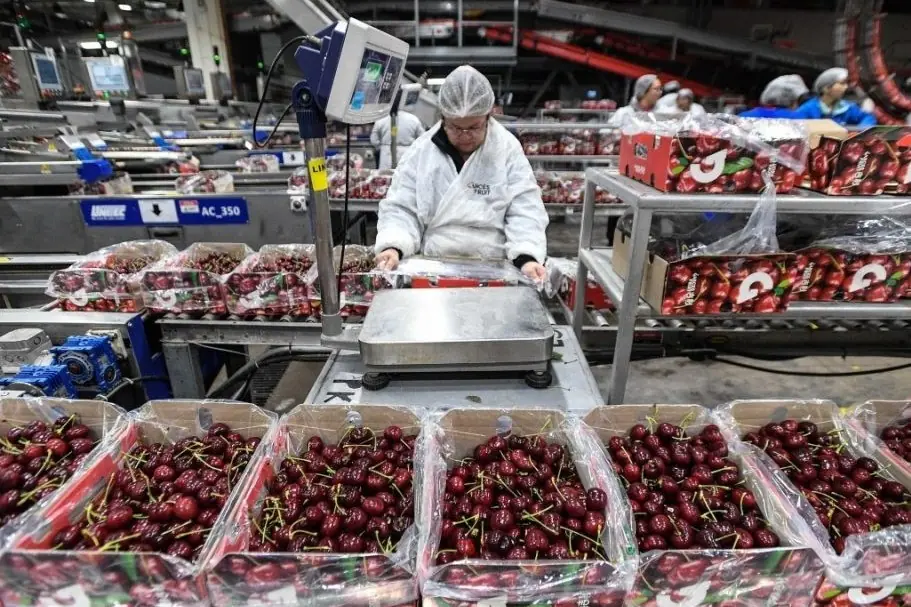A new international study focuses on the molecular benefits of consuming sweet cherries and also involves Chilean scientific contributions. The goal is to understand how this fruit may positively influence obesity and related disorders.
A multi-omics investigation to uncover the potential of sweet cherries
Professor Romina Pedreschi, from the School of Agronomy and the PhD Program in Agri-Food Sciences at the Pontificia Universidad Católica de Valparaíso (PUCV), is actively involved in an international research project exploring the health benefits of cherry consumption.
Funded by agencies from the State of Washington (USA) and led by Dr. Giuliana Noratto Stevens of Texas A&M University, the investigation focuses on identifying the molecular mechanisms that may make sweet cherries effective in counteracting key risk factors associated with obesity.
Previous clinical studies have already shown that dietary supplementation with sweet cherries may help reduce blood pressure and inflammation in obese individuals, without negatively affecting glucose levels, lipids, or liver enzymes.
Improvements have also been observed in gut microbiota composition and cognitive function.

Obesity and poor diet: a global issue that affects Chile as well
The current project aims to investigate these effects in greater depth through a multi-omics approach that integrates transcriptomic, metabolomic, and proteomic analyses to understand the biological processes involved.
According to Romina Pedreschi, one of the central goals of the initiative is to generate solid scientific evidence supporting a higher consumption of fruits and vegetables in response to the global rise in diet-related chronic diseases.
This is an issue that also affects Chile, where more than 80% of the population does not reach the recommended daily intake of five portions of fruits and vegetables (around 400 grams).
“Our diet is already a risk factor,” explains the professor, “and addressing obesity, diabetes, and hypertension also requires a cultural shift in eating habits.”
A clinical study using concentrated sweet cherry juice
Practically, the project includes a placebo-controlled clinical study: a group of obese individuals will receive a supplement based on concentrated sweet cherry juice.
Blood samples will then be analyzed to monitor markers related to systemic inflammation and modulation of gut microbiota.
Although the study is conducted mainly in the United States, Pedreschi highlights its global relevance: “Metabolic diseases are widespread worldwide, and Chile is no exception.
This project will allow us to better understand how the bioactive compounds in cherries can positively influence human metabolism.”
Cherries as a functional food: properties and potential
Beyond aiming to develop new nutritional guidelines, the research reinforces the role of sweet cherries as a functional food, rich in antioxidant compounds such as anthocyanins, responsible for their characteristic red color, and anti-inflammatory substances such as quercetin.
Regular cherry consumption may help reduce oxidative stress, improve cardiovascular health by regulating blood pressure, promote quality sleep thanks to melatonin and tryptophan, and support digestion due to their fiber content.
Innovation and research with a global vision
Pedreschi also highlights the importance of international cooperation and institutional synergy in carrying out impactful research projects.
The work aligns with ongoing studies within the Instituto Milenio Centro de Regulación del Genoma, where she serves as principal investigator, with PUCV among the supporting institutions.
Thanks to this collaborative network, cherry research gains new perspectives, strengthening not only scientific knowledge but also the agronomic and functional value of one of the most emblematic fruits of Latin American excellence.
Source: www.tourinnovacion.cl
Image source: Unisalute
Cherry Times - All rights reserved











